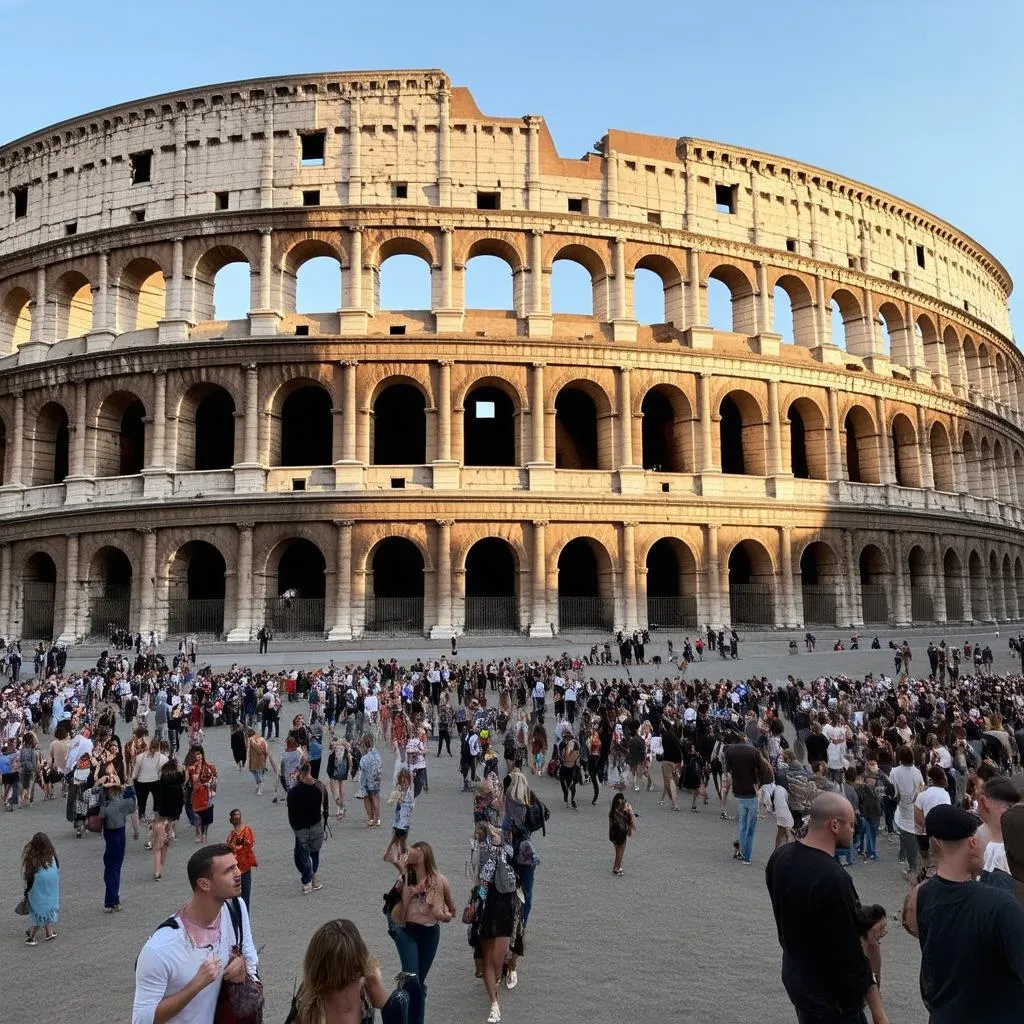Have you ever dreamt of wandering the cobblestone streets of Rome, indulging in a croissant beneath the Eiffel Tower, or sailing through the canals of Amsterdam? A European vacation is a dream for many, and for good reason! From rich history and breathtaking landscapes to vibrant cultures and mouthwatering cuisine, Europe offers something for everyone.
This comprehensive guide will walk you through everything you need to know to plan an unforgettable European adventure, from choosing your destinations and finding the best deals to packing tips and navigating local customs.
Planning Your European Vacation: Where to Begin?
The first step to planning any trip is deciding where you want to go! Europe is a continent overflowing with diverse countries, each with its own unique charm.
Choosing Your Destinations
Consider your interests:
- Are you a history buff eager to explore ancient ruins and grand castles? Italy, Greece, and England should be on your list.
- Do you crave stunning natural beauty? Look no further than the Swiss Alps, the Norwegian fjords, or the Scottish Highlands.
- Foodie at heart? France, Italy, and Spain are calling your name with their world-renowned culinary scenes.
Think about your travel style:
- Do you prefer fast-paced adventures or a more relaxed itinerary?
- Are you on a tight budget or looking for a luxurious getaway?
Some popular European itineraries include:
- Classics: London, Paris, Rome (perfect for first-timers).
- Western Europe: France, Spain, Portugal (for a mix of beaches, culture, and history).
- Central Europe: Germany, Austria, Czech Republic (for fairytale castles and charming towns).
- Scandinavia: Denmark, Sweden, Norway (for stunning landscapes and modern cities).
Pro Tip: Don’t try to squeeze too much into one trip! It’s better to focus on a few destinations and truly experience them rather than rushing through a long list.
 eiffel-tower-paris
eiffel-tower-paris
Determining the Best Time to Visit
Europe is a year-round destination, but each season offers a different experience.
- Summer (June-August): Peak season with warm weather, long days, and bustling crowds. Expect higher prices and book accommodations well in advance.
- Shoulder Seasons (Spring: April-May & Autumn: September-October): Pleasant weather, fewer crowds, and often better deals.
- Winter (November-March): Ideal for winter sports enthusiasts, Christmas markets, and cozy city breaks.
Expert Insight: “Travel during the shoulder seasons for a more authentic experience. You’ll have shorter lines at attractions and more opportunities to interact with locals,” advises renowned travel writer, Emily Walker, in her book “Secrets to Smart Travel.”
Budgeting for Your European Adventure
Europe can be an expensive continent to travel, but it doesn’t have to break the bank! Here are some tips for budget-conscious travelers:
- Travel during the off-season.
- Consider Eastern European countries like Hungary, Poland, and the Czech Republic, which offer excellent value for your money.
- Take advantage of free activities. Many cities have free walking tours, museums with free admission days, and beautiful parks to explore.
- Eat like a local. Skip the fancy restaurants and opt for local markets, bakeries, and street food stalls for delicious and affordable meals.
- Utilize budget airlines and train passes.
Essential Travel Tips for Europe
- Visa Requirements: Ensure you have the necessary visa for all the countries you’ll be visiting.
- Currency Exchange: It’s best to exchange currency at banks or reputable exchange bureaus.
- Transportation: Europe has an excellent public transportation system. Trains are a comfortable and efficient way to travel between cities, while buses are a budget-friendly option.
- Language: While English is widely spoken in tourist areas, learning a few basic phrases in the local language will enrich your experience and be appreciated by locals.
- Packing Essentials: Pack light and versatile clothing. Comfortable shoes are a must for all the walking you’ll be doing. Don’t forget an adapter!
Immersing Yourself in European Culture
- Embrace the Local Cuisine: Try regional specialties and don’t be afraid to venture beyond the tourist traps.
- Learn About Local Customs: Familiarize yourself with basic etiquette to avoid cultural faux pas.
- Attend Local Events: Check out festivals, markets, and concerts for an authentic taste of European culture.
 colosseum-italy
colosseum-italy
Exploring Specific Regions in Europe
Romantic Paris: City of Lights
Paris, the City of Lights, captivates hearts with its iconic Eiffel Tower, charming cafes, and world-class museums. Stroll along the Seine River, explore the Louvre Museum, and indulge in delectable pastries at a local boulangerie. For a touch of romance, consider a scenic picnic in the Luxembourg Gardens.
Historic Rome: Ancient Wonders and Modern Delights
Step back in time in Rome, where ancient ruins like the Colosseum and the Pantheon stand as testaments to a glorious past. Explore Vatican City, marvel at the art of Michelangelo, and toss a coin in the Trevi Fountain for good luck.
Vibrant Barcelona: Catalan Culture and Architectural Marvels
Barcelona, a city bursting with Catalan culture, boasts stunning architecture by Antoni Gaudí, including the Sagrada Família and Park Güell. Wander through the Gothic Quarter, relax on Barceloneta Beach, and experience the city’s vibrant nightlife.
Planning a Safe and Enjoyable Trip
- Travel Insurance: Protect yourself from unexpected events with comprehensive travel insurance.
- Stay Connected: Purchase a local SIM card or portable Wi-Fi device to stay connected.
- Be Aware of Your Surroundings: Be cautious of pickpockets, especially in crowded tourist areas.
Feng Shui Tips for Harmonious Travels
Incorporating elements of Feng Shui can enhance your travel experiences and promote positive energy flow.
- Pack Intentionally: Choose a suitcase in a color that resonates with your travel goals (e.g., red for adventure, blue for peace).
- Maintain Order: Keep your belongings organized to create a sense of calm.
- Carry a Protective Talisman: A small object with personal significance can bring comfort and good luck.
Frequently Asked Questions About European Travel
Q: Do I need to speak the local language?
A: While English is widely spoken in tourist areas, learning a few basic phrases in the local language will enhance your experience.
Q: What is the best way to get around Europe?
A: Europe has an excellent public transportation system. Trains are efficient for traveling between cities, while buses are a budget-friendly option.
Q: How much should I budget for a European vacation?
A: Costs vary depending on your destination, travel style, and time of year. However, you can expect to spend around $100-$200 per day on average.
Conclusion
A European vacation is an experience of a lifetime, offering a tapestry of history, culture, and breathtaking scenery. With careful planning and an open mind, you’re sure to create memories that will last forever. Start planning your dream trip today and get ready for an adventure that will ignite your senses and leave you yearning to return.
Don’t forget to explore Travelcar.edu.vn for more travel tips, destination guides, and exclusive deals to make your European adventure unforgettable.